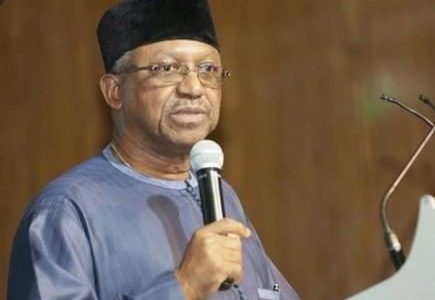
The Federal Government on Friday inaugurated the first Infectious Disease Centre (IDC), in the Federal Capital Territory, and handed it over to the University of Abuja Teaching Hospital (UATH).
Speaking at the inauguration of the 40-bed centre in Gwagwalada, Abuja, the Minister of Health, Dr Osagie Ehanire, said that the centre would improve Nigeria’s capacity to respond to all infectious diseases.

“With laboratory testing and case management in one location, there is a much shorter time between sample collection and infection confirmation.
”This will ensures early initiation of treatment and thus mitigate mortality during infectious disease outbreaks.

“I am very proud that today, we now have an international standard centre where we can manage highly pathogenic infectious disease cases, including critical medical and laboratory equipment,” Ehanire said.
The minister hinted that the model would be replicated across the 36 states to ensure that the country was better prepared for infectious disease outbreaks.
Other facilities in the hospital inaugurated by the minister included the Accident and Emergency Unit which is a 32-bed facility with an Intensive Care Unit (ICU), radiology suite, dialysis unit, fully equipped dedicated operating theatre and oxygen supply unit.
Also inaugurated was a Cardiology Unit with facilities for non-invasive procedures including a 4D echocardiograph.
The minister also laid the foundation stone for the Mental Health Block, a 76-bed block which, when completed, would have facilities for specialised therapies, an emergency area, consulting, psychotherapy and seminar rooms, and a pharmacy.
The Director General, Nigeria Centre for Disease Control (NCDC), Dr Chikwe Ihekweazu, in a remark, said that the project commenced in 2019 following the outbreak of the Lassa Fever in 2018 and the urgent need for a centre to manage infectious diseases.
In addition to managing viral hemorrhagic fevers such as Lassa fever, Ihekweazu said the Centre was designated for the management of cases of other infectious diseases, including Coronavirus, in the FCT.
The NCDC boss stated that the treatment centre also had a molecular laboratory for the prompt diagnosis of infectious diseases.
He said it was even more important to establish a treatment centre in Abuja to improve health security, while noting that COVID-19 had shown that no investment in the health sector was too small.
Ihekweazu reinforced the need for multi-sectoral collaboration to ensure the sustainability of the project.
Prof. Bisala Ekele, the Chief Medical Director of UATH, reaffirmed the commitment of the hospital management to ensuring optimal utilisation of the treatment centre for the management of infectious diseases, including the COVID-19 pandemic.
Ekele stated that the NCDC had supported the FCT Administration to mitigate the impact of the pandemic through training of health care workers on Infection Prevention and Control (IPC).
He added that the commission had also assisted in the provision of medical supplies, Personal Protective Equipment (PPE) and deployment of rapid response teams.
He disclosed that the NCDC had deployed and maintained a team of epidemiologists to support the FCT health authorities in response to the pandemic.
The News Agency of Nigeria (NAN) reports that the NCDC is mandated to lead the preparedness, detection and response to infectious disease outbreaks and public health emergencies.
Part of its role involves supporting states and building their capacity to respond to outbreaks, with directives from the Minister of Health.
NAN reports that the NCDC conducted a joint onsite assessment with relevant stakeholders in the FCT and it was agreed that UATH, Gwagwalada was strategically placed and suitable for the treatment centre.
(NAN)
